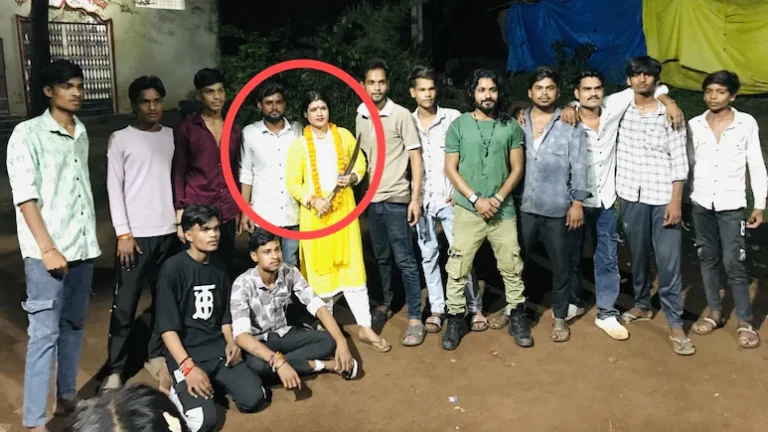Assam: Manipur man alleges genital removal without consent at Silchar hospital
Short Summary of the News
A 28-year-old man from Manipur filed a police complaint in Assam, alleging that a doctor at RE Hospital in Silchar surgically removed his genitals without consent. He initially sought treatment for a genital infection and was advised to undergo a biopsy, but claims the procedure resulted in the removal of his genitals without prior warning. The accused doctor, Dr. Eden Sinha, has been named in the FIR filed at Gungoor Police Outpost. The patient has accused medical negligence and appealed to Assam’s Chief Minister for action.
When Trust Breaks: The Alleged Non‑Consensual Genital Surgery in Silchar
1. Why This Story Stops You in Your Tracks
Imagine walking into a hospital for a biopsy—expecting a small procedure—and waking up to discover something deeply personal has been removed. That’s precisely what this complaint alleges: a shocking breach of trust, bodily autonomy, and medical ethics.
2. What Really Happened in Silchar
- A 28-year-old man from Manipur visited RE Hospital in Silchar, Assam, to treat what he believed was a genital infection.
- Doctors apparently recommended a biopsy to clarify his condition.
- After the procedure, he allegedly found that his genitals had been removed—without his knowledge or consent.
- The man has lodged an FIR naming Dr. Eden Sinha at the Gungoor police outpost, accusing medical negligence and violation of consent.
3. From Infection to Invasion: The Alleged Timeline
Let’s break down the supposed sequence:
- Initial Visit – Patient seeks help for infection.
- Advice – Medical staff suggest a biopsy.
- Procedure – Biopsy transforms into invasive surgery?
- Outcome – Patient loses genitals without warning.
- Complaint Filed – Informed authorities and named a doctor.
- Appeal – Victim has appealed to Assam’s CM for swift action.
4. Understanding Medical Consent: Why It Matters
Consent isn’t a formality—it’s a legal and ethical backbone of modern medicine:
- Patients must be informed of what, why, how, and what if—a concept called informed consent.
- Any procedure outside the scope of that consent is not only unethical—it’s illegal.
- Violating this principle can be punished under various medical ethics laws and even criminal statutes.
In this case, the man claims boundaries were crossed—big time.
5. The Alleged Victim’s Stand and Appeal
This man isn’t staying quiet. He has:
- Filed an official FIR against Dr. Sinha and the hospital.
- Accused them of gross negligence, bodily harm, and violation of medical rights.
- Appealed directly to Chief Minister Himanta Biswa Sarma, demanding a fast, transparent investigation.
6. The Hospital’s Response: Silence or Deflection?
As of now, there’s no official statement from RE Hospital or Dr. Sinha. No affidavits or internal clarifications have appeared in public. That silence only fuels suspicion and concern.
7. Broader Context: Similar Cases in India
Although rare, there have been alarming precedents:
- In Muzaffarnagar, UP, a young man alleged he underwent gender-reassignment surgery without consent—again, pointing to medical malpractice and exploitation.
- These cases, while geographically and medically different, share suspicion of non-consensual interventions violating medical ethics.
This incident is part of a worrying pattern: trust exploited, voices silenced.
Putting It All Together: Trust, Trauma, and the Way Forward
Here’s the thread:
- A Manipur man seeks medical help in Silchar.
- A surgery leaves him mutilated, allegedly without consent.
- He fights back with law—raising questions about ethics, consent, migrant rights.
- Our systems—legal, digital, ethical—must reinforce patient protection.
This isn’t just his story—it’s ours too. We deserve a health system that protects bodies and dignity equally.
FAQs
1. What legal recourse does the victim have?
He can pursue criminal charges under IPC, file a consumer complaint for negligence, and lodge a professional misconduct case with the National Medical Commission.
2. How common are such non-consensual procedures?
They’re rare but shocking when they occur. Previous cases, like in Uttar Pradesh, show that lack of oversight can empower predatory practice.
3. What safeguards could prevent this?
Video-recorded consent, patient advocates during discussions, full disclosure in local language, and periodic audits of consent protocols.
4. Can the accused doctor lose his license?
Yes. If medical misconduct is proven, the National Medical Commission can suspend or revoke the doctor’s license, in addition to criminal penalties.
5. How can patients protect themselves?
Be informed, ask questions, request written summaries of procedures, record consent dialogues, bring a trusted family member, and demand copies of all forms.




